#fritz bhaer
Text



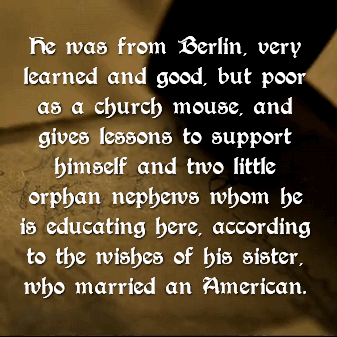
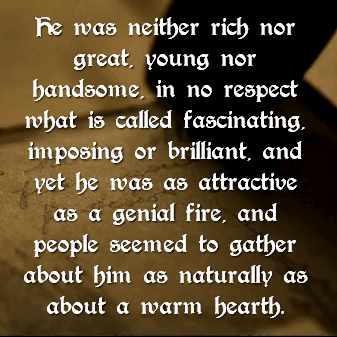




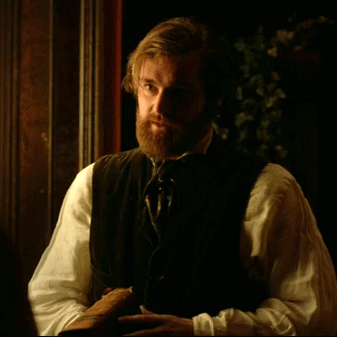
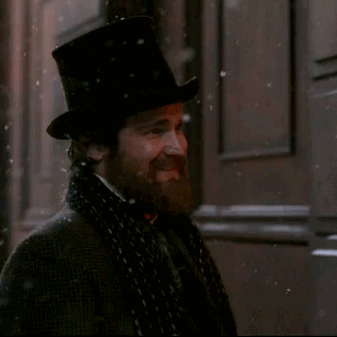
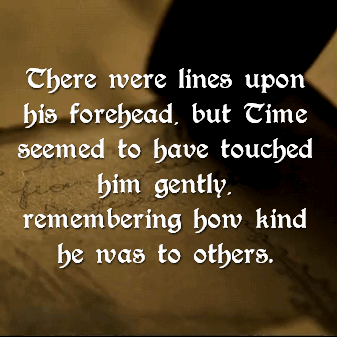
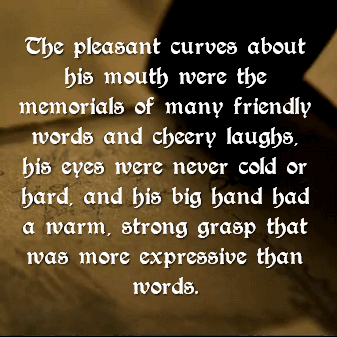





PERIOD DRAMA APPRECIATION WEEK 2023 - DAY 6: FAVORITE CHARACTER
MARK STANLEY as FRIEDRICH BHAER
in LITTLE WOMEN (2017)
Dir. VANESSA CASWILL
#perioddramaweek2023#perioddramaedit#perioddramasource#adaptationsdaily#little women#Mark Stanley#Little Women 2017#Fritz Bhaer#Friedrich Bhaer#I have given up and given in into Tumblr's demands
175 notes
·
View notes
Text
Jo and Fritz are in a qpr and you can't change my mind.
#little women#jo march#fritz#professor bhaer#qpr#we support the jo/fritz marriage on this blog#they are perfect#i love them
2 notes
·
View notes
Note
and now some supplementary listening <3333
Bhaer's aria, in which he recites Goethe
i kept this in my inbox because i loved it too much to post 🥺
#i am convinced that if EVERYONE gave a shot to lw opera there would be no bhaer hate#i mean it's FRITZ#💌restless wind inside a letter box💌#liz & matt smith 🤝 people who get it#liz 💖💖💖💖💖💖💖💖💖
3 notes
·
View notes
Text
I think one of the things I hate most about Gretta Gerwig's 2019 Little Women—and I hate pretty much everything about it—is how Laurie is treated as way more important than he actually is.
She went out of her way to put a modern twist on the classic, which is fine and good, but she talked a lot of talk about strong women AND YET STILL made all things concerning Laurie so freaking central to the plot. (And then made matters worse by shitting over actual feminist icon Friedrich "Fritz" Bhaer.)
Gerwig's well-documented obsession with Laurie, without seeming to have any real idea of what the character is actually like in the books, makes me pretty uncomfortable, actually.
49 notes
·
View notes
Text
I was tagged by @doverstar ages ago. Thank you very much !!!
three ships: Lord Peter Wimsey/Harriet Vane, Duke of Avon/Léon(ie), Jo March/Fritz Bhaer
first ship: Balto/Jenna (tie with Simba/Nala, Kovu/Kiara, and Spirit/Rain)
last song: I Know My Love
last movie: Dirty Rotten Scoundrels
currently reading: Mairelon the Magician
currently watching: This and that
currently consuming: In the middle of getting another cup of tea
currently craving: nothing except for my second cup of tea
I tag whoever likes to ♥
4 notes
·
View notes
Note
I don't think that Jo is demisexual. Her reaction to meeting Fritz is "Hnnngh; I liiiike. No wait. He's not remotely conventionally attractive. WTF me."
This ask is honestly bewildering to me. If you don’t think she is demisexual, then what do you think she is?
The way you worded it make it seems like Jo is only interested in conventionally attractive people, and I am not sure what makes you think that, especially since she is described, even by her own words, that she is not conventionally attractive either, and we know she isn’t vain in that way. If this was the case, how come she didn't see Laurie like that when he was described as being conventionally attractive? It’s again that weird idea that only conventionally attractive people can only be desirable, and if you find someone sexy that isn’t attractive then there is something wrong with you.
For those who do not know, demisexuality is when a person does not feel sexual desire for a person unless they have developed an emotional connection to the other person, and only after that connection is made will they feel a sexual desire for that person. Looks do not play a part in the demisexual’s feelings of desire, so the “He's not remotely conventionally attractive. WTF me” doesn’t work because she never desired anyone before him.
The first time she ever sees the professor, though it was not their official meeting, it was him doing something that immediately touched her and made her like him.
“As I went downstairs soon after, I saw something I liked. The flights are very long in this tall house, and as I stood waiting at the head of the third one for a little servant girl to lumber up, I saw a gentleman come along behind her, take the heavy hod of coal out of her hand, carry it all the way up, put it down at a door near by, and walk away, saying, with a kind nod and a foreign accent, ‘It goes better so. The little back is too young to haf such heaviness.’
Wasn’t it good of him? I like such things, for as Father says, trifles show character.”
After that, she begins to learn more about him before properly meeting him, and finds that he is a good man despite his unconventional looks. Just as it is said in the novel, she questioned why people liked him, not he’s unattractive and therefore can’t be liked.
“Why everybody liked him was what puzzled Jo, at first. He was neither rich nor great, young nor handsome, in no respect what is called fascinating, imposing, or brilliant, yet he was as attractive as a genial fire, and people seemed to gather about him as naturally as about a warm hearth. He was poor, yet always appeared to be giving something away; a stranger, yet everyone was his friend; no longer young, but as happy-hearted as a boy; plain and peculiar, yet his face was beautiful to many, and his oddities were freely forgiven for his sake. Jo often watched him, trying to discover the charm, and at last decided that it was benevolence which worked the miracle.”
“ ‘That’s it!” said Jo to herself, when she at length discovered that genuine good will toward one’s fellow men could beautify and dignify even a stout German teacher, who shoveled in his dinner, darned his own socks, and was burdened with the name of Bhaer.”
Does this sound like Jo is thinking to herself “WTF me?” No, it’s her understanding why everyone else likes him, and through what she observed of him. Also, here is the passage in which she writes to home about her first time of seeing him, and this is one of quite a few moments in which Jo is checking out the professor.
“I was thanking my stars that I’d learned to make nice buttonholes, when the parlor door opened and shut, and someone began to hum, Kennst Du Das Land, like a big bumblebee. It was dreadfully improper, I know, but I couldn’t resist the temptation, and lifting one end of the curtain before the glass door, I peeped in. Professor Bhaer was there, and while he arranged his books, I took a good look at him. A regular German—rather stout, with brown hair tumbled all over his head, a bushy beard, good nose, the kindest eyes I ever saw, and a splendid big voice that does one’s ears good, after our sharp or slipshod American gabble. His clothes were rusty, his hands were large, and he hadn’t a really handsome feature in his face, except his beautiful teeth, yet I liked him, for he had a fine head, his linen was very nice, and he looked like a gentleman, though two buttons were off his coat and there was a patch on one shoe.”
“...she coolly turned round and studied him—a proceeding which would have much surprised him, had he known it, for the worthy Professor was very humble in his own conceit.”
Jo was totally checking him out, and not at all thinking “Ugh, he’s not attractive, why do I like him?” She ends her letter with “On reading over my letter, it strikes me as rather Bhaery, but I am always interested in odd people...”
So, yes, I maintain Jo is demisexual, and she very clearly is into the professor, even if she doesn’t quite know it or even willing to admit it until much later. He may not be attractive in the same way that Laurie is, but that doesn’t stop him from being perhaps the most attractive male in the book, as his good heart and gentle ways enthrall not only the other characters, but to many readers everywhere.
#answered asks#little women#jo march#jo x friedrich#jo and friedrich#demisexual#jo is demisexual and demiromantic#friedrich bhaer
13 notes
·
View notes
Note
Am I only one who thinks Jo and Fritz became best friends in NYC? Or did I misread something?
I always thought that was the case. Actually, I think they fell in love with one another in New York. I think it happened with Jo after the symposium.
“He bore it as long as he could, but when he was appealed to for an opinion, he blazed up with honest indignation and defended religion with all the eloquence of truth—an eloquence which made his broken English musical and his plain face beautiful. He had a hard fight, for the wise men argued well, but he didn’t know when he was beaten and stood to his colors like a man. Somehow, as he talked, the world got right again to Jo. The old beliefs, that had lasted so long, seemed better than the new. God was not a blind force, and immortality was not a pretty fable, but a blessed fact. She felt as if she had solid ground under her feet again, and when Mr. Bhaer paused, outtalked but not one whit convinced, Jo wanted to clap her hands and thank him.
She did neither, but she remembered the scene, and gave the Professor her heartiest respect, for she knew it cost him an effort to speak out then and there, because his conscience would not let him be silent. She began to see that character is a better possession than money, rank, intellect, or beauty, and to feel that if greatness is what a wise man has defined it to be, ‘truth, reverence, and good will’, then her friend Friedrich Bhaer was not only good, but great”.
There is this great moment in chapter Surprises, when Friedrich comes to court Jo and the narrator mentions that Jo forgot to compare Friedrich to Laurie, which is what she usually did with men. That is because Laurie was Jo’s “gate” to the world of men that she adored, but Laurie let her down trying to suppress her. Friedrich never does that which is why he excels in Jo’s eyes.
@honeslytransparentcollectorlove drop me a note if you ever want to be a guest in the podcast :D
7 notes
·
View notes
Text
Little Women, Louisa May Alcott
Chapter 47 The End
XLVII.
HARVEST TIME.
For a year Jo and her Professor worked and waited, hoped and loved, met occasionally, and wrote such voluminous letters that the rise in the price of paper was accounted for, Laurie said. The second year began rather soberly, for their prospects did not brighten, and Aunt March died suddenly. But when their first sorrow was over,—for they loved the old lady in spite of her sharp tongue,—they found they had cause for rejoicing, for she had left Plumfield to Jo, which made all sorts of joyful things possible.
"It's a fine old place, and will bring a handsome sum; for of course you intend to sell it," said Laurie, as they were all talking the matter over, some weeks later.
"No, I don't," was Jo's decided answer, as she petted the fat poodle, whom she had adopted, out of respect to his former mistress.
576 "You don't mean to live there?"
"Yes, I do."
"But, my dear girl, it's an immense house, and will take a power of money to keep it in order. The garden and orchard alone need two or three men, and farming isn't in Bhaer's line, I take it."
"He'll try his hand at it there, if I propose it."
"And you expect to live on the produce of the place? Well, that sounds paradisiacal, but you'll find it desperate hard work."
"The crop we are going to raise is a profitable one;" and Jo laughed.
"Of what is this fine crop to consist, ma'am?"
"Boys. I want to open a school for little lads,—a good, happy, homelike school, with me to take care of them, and Fritz to teach them."
"There's a truly Joian plan for you! Isn't that just like her?" cried Laurie, appealing to the family, who looked as much surprised as he.
"I like it," said Mrs. March decidedly.
"So do I," added her husband, who welcomed the thought of a chance for trying the Socratic method of education on modern youth.
"It will be an immense care for Jo," said Meg, stroking the head of her one all-absorbing son.
"Jo can do it, and be happy in it. It's a splendid idea. Tell us all about it," cried Mr. Laurence, who had been longing to lend the lovers a hand, but knew that they would refuse his help.
"I knew you'd stand by me, sir. Amy does too—I see it in her eyes, though she prudently waits to turn it over in her mind before she speaks. Now, my dear people," continued Jo earnestly, "just understand that this isn't a new idea of mine, but a long-cherished plan. Before my Fritz came, I used to think how, when I'd made my fortune, and no one needed me at home, I'd hire a big house, and pick up some poor, forlorn little lads, who hadn't any mothers, and take care of them, and make life jolly for them before it was too late. I see so many going to ruin, for want of help at the right minute; I love so to do anything for them; I seem to feel their wants, and sympathize with their troubles, and, oh, I should so like to be a mother to them!"
577 Mrs. March held out her hand to Jo, who took it, smiling, with tears in her eyes, and went on in the old enthusiastic way, which they had not seen for a long while.
"I told my plan to Fritz once, and he said it was just what he would like, and agreed to try it when we got rich. Bless his dear heart, he's been doing it all his life,—helping poor boys, I mean, not getting rich; that he'll never be; money doesn't stay in his pocket long enough to lay up any. But now, thanks to my good old aunt, who loved me better than I ever deserved, I'm rich, at least I feel so, and we can live at Plumfield perfectly well, if we have a flourishing school. It's just the place for boys, the house is big, and the furniture strong and plain. There's plenty of room for dozens inside, and splendid grounds outside. They could help in the garden and orchard: such work is healthy, isn't it, sir? Then Fritz can train and teach in his own way, and father will help him. I can feed and nurse and pet and scold them; and mother will be my stand-by. I've always longed for lots of boys, and never had enough; now I can fill the house full, and revel in the little dears to my heart's content. Think what luxury,—Plumfield my own, and a wilderness of boys to enjoy it with me!"
As Jo waved her hands, and gave a sigh of rapture, the family went off into a gale of merriment, and Mr. Laurence laughed till they thought he'd have an apoplectic fit.
"I don't see anything funny," she said gravely, when she could be heard. "Nothing could be more natural or proper than for my Professor to open a school, and for me to prefer to reside on my own estate."
"She is putting on airs already," said Laurie, who regarded the idea in the light of a capital joke. "But may I inquire how you intend to support the establishment? If all the pupils are little ragamuffins, I'm afraid your crop won't be profitable in a worldly sense, Mrs. Bhaer."
"Now don't be a wet-blanket, Teddy. Of course I shall have rich pupils, also,—perhaps begin with such altogether; then, when I've got a start, I can take a ragamuffin or two, just for a relish. Rich people's children often need care and comfort, as well as poor. I've 578 seen unfortunate little creatures left to servants, or backward ones pushed forward, when it's real cruelty. Some are naughty through mismanagement or neglect, and some lose their mothers. Besides, the best have to get through the hobbledehoy age, and that's the very time they need most patience and kindness. People laugh at them, and hustle them about, try to keep them out of sight, and expect them to turn, all at once, from pretty children into fine young men. They don't complain much,—plucky little souls,—but they feel it. I've been through something of it, and I know all about it. I've a special interest in such young bears, and like to show them that I see the warm, honest, well-meaning boys' hearts, in spite of the clumsy arms and legs and the topsy-turvy heads. I've had experience, too, for haven't I brought up one boy to be a pride and honor to his family?"
"I'll testify that you tried to do it," said Laurie, with a grateful look.
"And I've succeeded beyond my hopes; for here you are, a steady, sensible business man, doing heaps of good with your money, and laying up the blessings of the poor, instead of dollars. But you are not merely a business man: you love good and beautiful things, enjoy them yourself, and let others go halves, as you always did in the old times. I am proud of you, Teddy, for you get better every year, and every one feels it, though you won't let them say so. Yes, and when I have my flock, I'll just point to you, and say, 'There's your model, my lads.'"
Poor Laurie didn't know where to look; for, man though he was, something of the old bashfulness came over him as this burst of praise made all faces turn approvingly upon him.
"I say, Jo, that's rather too much," he began, just in his old boyish way. "You have all done more for me than I can ever thank you for, except by doing my best not to disappoint you. You have rather cast me off lately, Jo, but I've had the best of help, nevertheless; so, if I've got on at all, you may thank these two for it;" and he laid one hand gently on his grandfather's white head, the other on Amy's golden one, for the three were never far apart.
"I do think that families are the most beautiful things in all the 579 world!" burst out Jo, who was in an unusually uplifted frame of mind just then. "When I have one of my own, I hope it will be as happy as the three I know and love the best. If John and my Fritz were only here, it would be quite a little heaven on earth," she added more quietly. And that night, when she went to her room, after a blissful evening of family counsels, hopes, and plans, her heart was so full of happiness that she could only calm it by kneeling beside the empty bed always near her own, and thinking tender thoughts of Beth.
It was a very astonishing year altogether, for things seemed to happen in an unusually rapid and delightful manner. Almost before she knew where she was, Jo found herself married and settled at Plumfield. Then a family of six or seven boys sprung up like mushrooms, and flourished surprisingly, poor boys as well as rich; for Mr. Laurence was continually finding some touching case of destitution, and begging the Bhaers to take pity on the child, and he would gladly pay a trifle for its support. In this way the sly old gentleman got round proud Jo, and furnished her with the style of boy in which she most delighted.
Of course it was up-hill work at first, and Jo made queer mistakes; but the wise Professor steered her safely into calmer waters, and the most rampant ragamuffin was conquered in the end. How Jo did enjoy her "wilderness of boys," and how poor, dear Aunt March would have lamented had she been there to see the sacred precincts of prim, well-ordered Plumfield overrun with Toms, Dicks, and Harrys! There was a sort of poetic justice about it, after all, for the old lady had been the terror of the boys for miles round; and now the exiles feasted freely on forbidden plums, kicked up the gravel with profane boots unreproved, and played cricket in the big field where the irritable "cow with a crumpled horn" used to invite rash youths to come and be tossed. It became a sort of boys' paradise, and Laurie suggested that it should be called the "Bhaer-garten," as a compliment to its master and appropriate to its inhabitants.
It never was a fashionable school, and the Professor did not lay up a fortune; but it was just what Jo intended it to be,—"a happy, homelike place for boys, who needed teaching, care, and kindness." 580 Every room in the big house was soon full; every little plot in the garden soon had its owner; a regular menagerie appeared in barn and shed, for pet animals were allowed; and, three times a day, Jo smiled at her Fritz from the head of a long table lined on either side with rows of happy young faces, which all turned to her with affectionate eyes, confiding words, and grateful hearts, full of love for "Mother Bhaer." She had boys enough now, and did not tire of them, though they were not angels, by any means, and some of them caused both Professor and Professorin much trouble and anxiety. But her faith in the good spot which exists in the heart of the naughtiest, sauciest, most tantalizing little ragamuffin gave her patience, skill, and, in time, success; for no mortal boy could hold out long with Father Bhaer shining on him as benevolently as the sun, and Mother Bhaer forgiving him seventy times seven. Very precious to Jo was the friendship of the lads; their penitent sniffs and whispers after wrong-doing; their droll or touching little confidences; their pleasant enthusiasms, hopes, and plans; even their misfortunes, for they only endeared them to her all the more. There were slow boys and bashful boys; feeble boys and riotous boys; boys that lisped and boys that stuttered; one or two lame ones; and a merry little quadroon, who could not be taken in elsewhere, but who was welcome to the "Bhaer-garten," though some people predicted that his admission would ruin the school.
Yes; Jo was a very happy woman there, in spite of hard work, much anxiety, and a perpetual racket. She enjoyed it heartily, and found the applause of her boys more satisfying than any praise of the world; for now she told no stories except to her flock of enthusiastic believers and admirers. As the years went on, two little lads of her own came to increase her happiness,—Rob, named for grandpa, and Teddy, a happy-go-lucky baby, who seemed to have inherited his papa's sunshiny temper as well as his mother's lively spirit. How they ever grew up alive in that whirlpool of boys was a mystery to their grandma and aunts; but they flourished like dandelions in spring, and their rough nurses loved and served them well.
There were a great many holidays at Plumfield, and one of the most delightful was the yearly apple-picking; for then the Marches, Laurences, Brookes, and Bhaers turned out in full force, and made a day 581 of it. Five years after Jo's wedding, one of these fruitful festivals occurred,—a mellow October day, when the air was full of an exhilarating freshness which made the spirits rise, and the blood dance healthily in the veins. The old orchard wore its holiday attire; golden-rod and asters fringed the mossy walls; grasshoppers skipped briskly in the sere grass, and crickets chirped like fairy pipers at a feast; squirrels were busy with their small harvesting; birds twittered their adieux from the alders in the lane; and every tree stood ready to send down its shower of red or yellow apples at the first shake. Everybody was there; everybody laughed and sang, climbed up and tumbled down; everybody declared that there never had been such a perfect day or such a jolly set to enjoy it; and every one gave themselves up to the simple pleasures of the hour as freely as if there were no such things as care or sorrow in the world.
Mr. March strolled placidly about, quoting Tusser, Cowley, and Columella to Mr. Laurence, while enjoying—
"The gentle apple's winey juice."
The Professor charged up and down the green aisles like a stout Teutonic knight, with a pole for a lance, leading on the boys, who made a hook and ladder company of themselves, and performed wonders in the way of ground and lofty tumbling. Laurie devoted himself to the little ones, rode his small daughter in a bushel-basket, took Daisy up among the birds' nests, and kept adventurous Rob from breaking his neck. Mrs. March and Meg sat among the apple piles like a pair of Pomonas, sorting the contributions that kept pouring in; while Amy, with a beautiful motherly expression in her face, sketched the various groups, and watched over one pale lad, who sat adoring her with his little crutch beside him.
Jo was in her element that day, and rushed about, with her gown pinned up, her hat anywhere but on her head, and her baby tucked under her arm, ready for any lively adventure which might turn up. Little Teddy bore a charmed life, for nothing ever happened to him, and Jo never felt any anxiety when he was whisked up into a tree by one lad, galloped off on the back of another, or supplied with sour russets by his indulgent papa, who labored under the Germanic delusion 582 that babies could digest anything, from pickled cabbage to buttons, nails, and their own small shoes. She knew that little Ted would turn up again in time, safe and rosy, dirty and serene, and she always received him back with a hearty welcome, for Jo loved her babies tenderly.
At four o'clock a lull took place, and baskets remained empty, while the apple-pickers rested, and compared rents and bruises. Then Jo and Meg, with a detachment of the bigger boys, set forth the supper on the grass, for an out-of-door tea was always the crowning joy of the day. The land literally flowed with milk and honey on such occasions, for the lads were not required to sit at table, but allowed to partake of refreshment as they liked,—freedom being the sauce best beloved by the boyish soul. They availed themselves of the rare privilege to the fullest extent, for some tried the pleasing experiment of drinking milk while standing on their heads, others lent a charm to leap-frog by eating pie in the pauses of the game, cookies were sown broadcast over the field, and apple-turnovers roosted in the trees like a new style of bird. The little girls had a private tea-party, and Ted roved among the edibles at his own sweet will.
When no one could eat any more, the Professor proposed the first regular toast, which was always drunk at such times,—"Aunt March, God bless her!" A toast heartily given by the good man, who never forgot how much he owed her, and 583 quietly drunk by the boys, who had been taught to keep her memory green.
"Now, grandma's sixtieth birthday! Long life to her, with three times three!"
That was given with a will, as you may well believe; and the cheering once begun, it was hard to stop it. Everybody's health was proposed, from Mr. Laurence, who was considered their special patron, to the astonished guinea-pig, who had strayed from its proper sphere in search of its young master. Demi, as the oldest grandchild, then presented the queen of the day with various gifts, so numerous that they were transported to the festive scene in a wheelbarrow. Funny presents, some of them, but what would have been defects to other eyes were ornaments to grandma's,—for the children's gifts were all their own. Every stitch Daisy's patient little fingers had put into the handkerchiefs she hemmed was better than embroidery to Mrs. March; Demi's shoe-box was a miracle of mechanical skill, though the cover wouldn't shut; Rob's footstool had a wiggle in its uneven legs, that she declared was very soothing; and no page of the costly book Amy's child gave her was so fair as that on which appeared, in tipsy capitals, the words,—"To dear Grandma, from her little Beth."
During this ceremony the boys had mysteriously disappeared; and, when Mrs. March had tried to thank her children, and broken down, while Teddy wiped her eyes on his pinafore, the Professor suddenly began to sing. Then, from above him, voice after voice took up the words, and from tree to tree echoed the music of the unseen choir, as the boys sung, with all their hearts, the little song Jo had written, Laurie set to music, and the Professor trained his lads to give with the best effect. This was something altogether new, and it proved a grand success; for Mrs. March couldn't get over her surprise, and insisted on shaking hands with every one of the featherless birds, from tall Franz and Emil to the little quadroon, who had the sweetest voice of all.
After this, the boys dispersed for a final lark, leaving Mrs. March and her daughters under the festival tree.
"Leaving Mrs. March and her daughters under the festival tree."—Page 583
"I don't think I ever ought to call myself 'Unlucky Jo' again, when my greatest wish has been so beautifully gratified," said Mrs. 584 Bhaer, taking Teddy's little fist out of the milk-pitcher, in which he was rapturously churning.
"And yet your life is very different from the one you pictured so long ago. Do you remember our castles in the air?" asked Amy, smiling as she watched Laurie and John playing cricket with the boys.
"Dear fellows! It does my heart good to see them forget business, and frolic for a day," answered Jo, who now spoke in a maternal way of all mankind. "Yes, I remember; but the life I wanted then seems selfish, lonely, and cold to me now. I haven't given up the hope that I may write a good book yet, but I can wait, and I'm sure it will be all the better for such experiences and illustrations as these;" and Jo pointed from the lively lads in the distance to her father, leaning on the Professor's arm, as they walked to and fro in the sunshine, deep in one of the conversations which both enjoyed so much, and then to her mother, sitting enthroned among her daughters, with their children in her lap and at her feet, as if all found help and happiness in the face which never could grow old to them.
"My castle was the most nearly realized of all. I asked for splendid things, to be sure, but in my heart I knew I should be satisfied, if I had a little home, and John, and some dear children like these. I've got them all, thank God, and am the happiest woman in the world;" and Meg laid her hand on her tall boy's head, with a face full of tender and devout content.
"My castle is very different from what I planned, but I would not alter it, though, like Jo, I don't relinquish all my artistic hopes, or confine myself to helping others fulfil their dreams of beauty. I've begun to model a figure of baby, and Laurie says it is the best thing I've ever done. I think so myself, and mean to do it in marble, so that, whatever happens, I may at least keep the image of my little angel."
As Amy spoke, a great tear dropped on the golden hair of the sleeping child in her arms; for her one well-beloved daughter was a frail little creature and the dread of losing her was the shadow over Amy's sunshine. This cross was doing much for both father and mother, for one love and sorrow bound them closely together. Amy's nature was 585 growing sweeter, deeper, and more tender; Laurie was growing more serious, strong, and firm; and both were learning that beauty, youth, good fortune, even love itself, cannot keep care and pain, loss and sorrow, from the most blest; for—
"Into each life some rain must fall,
Some days must be dark and sad and dreary."
"She is growing better, I am sure of it, my dear. Don't despond, but hope and keep happy," said Mrs. March, as tender-hearted Daisy stooped from her knee, to lay her rosy cheek against her little cousin's pale one.
"I never ought to, while I have you to cheer me up, Marmee, and Laurie to take more than half of every burden," replied Amy warmly. "He never lets me see his anxiety, but is so sweet and patient with me, so devoted to Beth, and such a stay and comfort to me always, that I can't love him enough. So, in spite of my one cross, I can say with Meg, 'Thank God, I'm a happy woman.'"
"There's no need for me to say it, for every one can see that I'm far happier than I deserve," added Jo, glancing from her good husband to her chubby children, tumbling on the grass beside her. "Fritz is getting gray and stout; I'm growing as thin as a shadow, and am thirty; we never shall be rich, and Plumfield may burn up any night, for that incorrigible Tommy Bangs will smoke sweet-fern cigars under the bed-clothes, though he's set himself afire three times already. But in spite of these unromantic facts, I have nothing to complain of, and never was so jolly in my life. Excuse the remark, but living among boys, I can't help using their expressions now and then."
"Yes, Jo, I think your harvest will be a good one," began Mrs. March, frightening away a big black cricket that was staring Teddy out of countenance.
"Not half so good as yours, mother. Here it is, and we never can thank you enough for the patient sowing and reaping you have done," cried Jo, with the loving impetuosity which she never could outgrow.
"I hope there will be more wheat and fewer tares every year," said Amy softly.
586 "A large sheaf, but I know there's room in your heart for it, Marmee dear," added Meg's tender voice.
Touched to the heart, Mrs. March could only stretch out her arms, as if to gather children and grandchildren to herself, and say, with face and voice full of motherly love, gratitude, and humility,—
"O, my girls, however long you may live, I never can wish you a greater happiness than this!"
587
589Louisa M. Alcott's Writin
2 notes
·
View notes
Text
Assago, in arrivo al Teatro Repower lo spettacolo “Piccole donne”
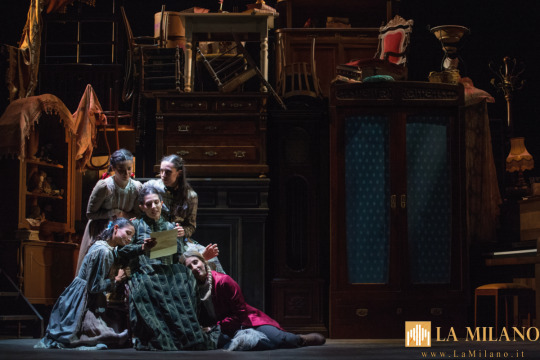
Assago, in arrivo al Teatro Repower lo spettacolo “Piccole donne”.
Per il secondo anno consecutivo in Italia la Compagnia dell'Alba porta in scena un nuovo Family Entertainment: “Piccole donne - il Musical di Broadway", avvalendosi della co-produzione del TSA - Teatro Stabile d’Abruzzo. Il musical sarà in scena al Teatro Repower dal 24 al 26 febbraio.
"Piccole donne - il Musical di Broadway" è un adattamento del celebre romanzo di Luisa May Alcott che fin dalla sua pubblicazione nel 1868 è stato uno straordinario successo. Considerato uno dei capolavori assoluti della letteratura per ragazzi è un romanzo senza tempo, una storia adatta al pubblico di ogni età che ha avuto innumerevoli trasposizioni cinematografiche e che ora la Compagnia dell’Alba presenta nella versione musicale di Broadway grazie ad uno speciale accordo con Music Theatre International.
Lo spettacolo, con protagonista Sutton Foster, ha debuttato al Virginia Theatre di Broadway il 23 gennaio 2005, a seguito di ben 55 anteprime, collezionando diverse nomination ai Tony Award, al Drama Desk Award e all’Outer Critics Circle Award dello stesso anno. Successivamente è stato presentato in tour in 30 città negli Stati Uniti, toccando anche San Diego e Washington DC, mentre altre produzioni hanno preso vita in Australia, Austria, Germania e Gran Bretagna. Il libretto del musical è di Allan Knee, le musiche di Jason Howland, le liriche di Mindi Dickstein.
La versione italiana è curata da Gianfranco Vergoni, le scene sono di Gabriele Moreschi, illuminate dal light designer Valerio Tiberi. La direzione musicale è di Gabriele de Guglielmo, mentre la regia e le coreografie sono di Fabrizio Angelini.
Il musical, come il romanzo, racconta le storie delle quattro sorelle March (Meg, la saggia, Beth, il tesoro di casa, Amy, la perfetta piccola dama, e in particolare Josephine, detta Jo, maschiaccio di casa e aspirante scrittrice) che nella seconda metà dell’800 vivono insieme alla loro mamma a Concord, nel Massachusetts, mentre il loro babbo è lontano, cappellano dell'esercito dell'Unione durante la guerra civile americana.
Le loro vite, questa volta in musica, si intrecciano con quelle di altri coloriti personaggi: il professor Bhaer, la zia March, il giovane Laurie con il signor Laurence, suo nonno, e il suo tutore, John Brooke. "Piccole donne" sarà proprio il titolo del romanzo che Jo scriverà sulla storia della sua famiglia e dei suoi amici e che verrà pubblicato da un grande editore. Un musical che, come consuetudine della Compagnia, sarà cantato interamente dal vivo.
Questo il cast: Jo - Edilge Di Stefano, Fritz Bhaer - Fabrizio Angelini, John Brooke - Gabriele de Guglielmo, Meg - Alberta Cipriani, Beth - Giulia Rubino, Amy - Claudia Mancini, Mamy - Carolina Ciampoli, Zia March - Laura Del Ciotto; con Giancarlo Teodori - Mr Laurence e con Flavio Gismondi - Laurie.
Programmazione: venerdì e sabato ore 20.45, domenica ore 15.30. Biglietti (da € 28,00 a e 39,00) in vendita su ticketone.
...
#notizie #news #breakingnews #cronaca #politica #eventi #sport #moda
Read the full article
1 note
·
View note
Text

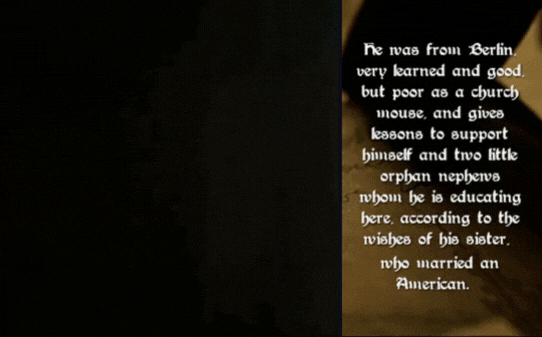

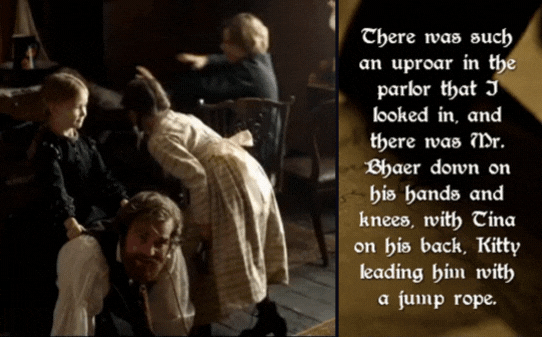
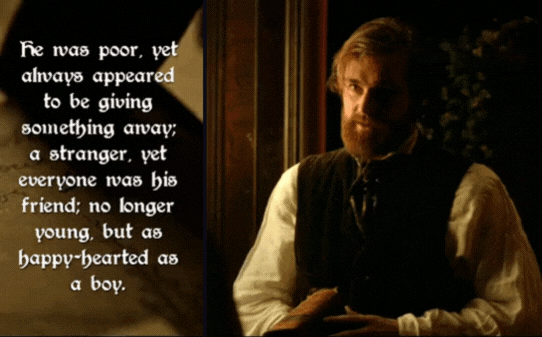
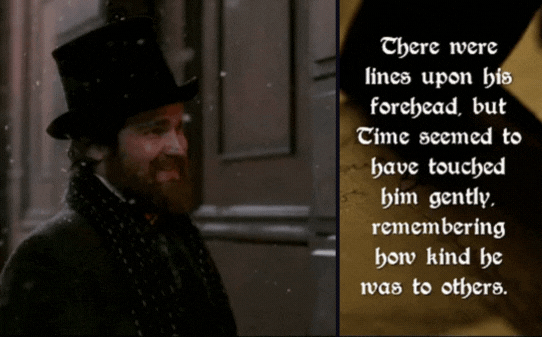


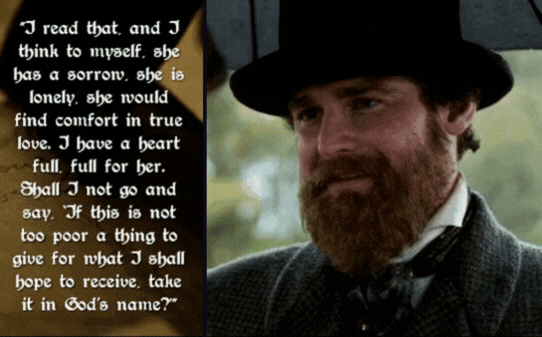
PERIOD DRAMA APPRECIATION WEEK 2023 - DAY 6: FAVORITE CHARACTER
MARK STANLEY as FRIEDRICH BHAER
in LITTLE WOMEN (2017)
Dir. VANESSA CASWILL
42 notes
·
View notes
Text
Me: *sits down to watch Little Men (1998)*
Little Men (1998): so, Bhaer died-
Me:

#sorry but no#I refuse to watch some adaptation without him#friedrich bhaer#Fritz bhaer#jo x friedrich#jo x fritz#if they did that to bhaer I bet they also don't like amy and I won't like how they handle her there#I just have the feeling#little women#little men#jo's boys#jo march#little women meme
97 notes
·
View notes
Note
Okay, me again 🤭 seems like Little Women is preoccupying my thoughts tonight, and I don't remember if I've seen you talk about this, but I'm really curious: thoughts on Jo and Bhaer ? I really liked him in the book (which i read before seeing the movie) but not as a romantic interest for Jo, bc he's so much older than her. Then the movie made him younger and I feel like the actors had so much chemistry, I was genuinely rooting for them! And while they do end up together in the end, I read this article talking about how this did not happen "irl" but what Jo put in her book bc the editor wanted the main female character married off. This was also supported by the colors of the scenes, how the present day scenes are all duller/cold colors vs flashbacks/scenes of the book Jo writes being so sunny; the epilogue scene (where Jo and Friedrich are married) is drenched in sunlight, and the scene of her chasing him to the train station is also very warm-colored. So thoughts on this whole thing? It's all the more interesting for me to hear them bc I'm obviously looking at this from a very romance pov (can't help it lol) but platonic, friendship love is the lense you look through most of the time (or so I've noticed).
There are two witches within me. One loves Jo and Fritz and doesn't care about the nature of their relationship as long as they're having fun being their lovely nerdy selves, the other one is perfectly aware that I, as someone who strongly identifies with Josephine Jo March, would only agree to marriage if it resembled the one Jo and Fritz have in the books. (Would still elope though, let's not get too ahead of ourselves, was talking to a childhood friend a few weeks back and my sister joked about me possibly having already eloped with someone and my childhood friend said: Jo. That would be very you. I rolled my eyes and started to talk about how incompetent the writers of my bio textbook are, but who am I to argue, I'm just the person in question here.) I strongly recommend reading Little Men and Jo's Boys because, to be frank, those works forced me to accept the grip this fictional relationship has on my rotten, evil, spinster-wanna-be heart. The rest is under the cut because it all got concerningly long. How shocking :O
It's complicated! But it always is with me and my romantic otps because I always identify with the people involved in those ships that I almost ship them in spite of myself. It's easier if I identify with both parties and if I identify with them in a way that doesn't make me completely insane (aka I don't identify with them entirely), but offers me a certain amount of comfort probably because I've already come to terms with the thing about them that I relate to. (this is how I feel about sparkly GG's Dan and Blair) BUT with Jo and Fritz or with Ten and Rose I just go :| because they involve characters who find the idea of settling down repelling and uncharacteristic to their understanding of themselves, like in total contradiction of who they are or have always been and then there's this person and it's just... well this. I think what makes it even more unsettling for me is how this isn't exactly a conscious decision, it's just that Jo and Fritz love spending time together. They simply enjoy being around each other and geeking out and talking literature and art and politics and philosophy and Jo feels so seen and understood in an intellectual sense for the first time ever and that's so big and so important to her. And I think that's what will always be true about their dynamic no matter how you view it. (and I beg to argue that lw 2019 offers enough room for any interpretation)
(Mainly talking about book Jo x Bhaer in the following paragraphs because I don't ship them in the 2019 movie and my interpretation overlaps with the one you presented in your ask, boy do I love having multiple versions of the same story in my head.)
Idk they just kinda slip into sharing their personal worlds with one another, there's not really a big realisation about the nature of their bond while they are together, the italicized oh moment is a result of overthinking the interactions after they have already occurred. While they're together it's just fun and pleasent and Jo doesn't have the time to go through potential meaning of it all while it's happening which is quite telling because, with Jo being a storyteller, she observes every moment from that lens, but with Fritz reality is somehow enough? YOUR HEART UNDERSTOOD MINE?!?!??!?! That's from the book, that's the essence of Jo and Fritz. You can't exactly stay immune to that. Like Fritz is the most Jo-ish love interest Jo could have gotten. He's bookish and an outcast and raggedy (affectionate) and so deeply kind. In the words of Penn Badgley (I love using his name as one of a great philosopher, @/tumblr girlies jochase has A Type) it's this completely heady thing where Jo falls for this person because he's her imperfectly perfect intellectual match and he gets her and he listens and she ends up loving him romantically because of all that. It's a progression! This is Jo March, of course it's a story in chapters, right? Everything is a story with Jo. And Fritz is kind of her indicator that real life can be just as literary, but maybe not in the way that she expected it to be? LMA really said if I have to marry my girl off she's getting the most unconventional marriage there is or she's dying, like that's it. All in all, it's such a cool dynamic regardless of the label you decide to put on it, but I think in the book you can't read it as anything other than romantic because it kinda takes away from the power of what LMA did with them, you know? Also like. I love how, in the book, Fritz isn't portrayed as conventionally attractive, but it's quite clear that he is attractive to Jo, which is also a brilliant move on Alcott's part. Also peace.mp3.
#annie tag#jo x friedrich#little women 2019#please don't leave any pointless hate on this post i like the ship but i like the 2019 movie too so please#offer arguments if you want (I LOVE DISCUSSIONS) but don't hate for the sake of hating#💌restless wind inside a letter box💌#also people who think lma married jo to fritz because he's the worst and that was her way of getting back at society?#why in the world would she condemn jo to unhappiness...#he was also modeled after henry james thoreau who was very close to louisa#don't get me wrong i HATED jo's ending at first. but the sequels converted me#2019 movie is a completely different dimension for me though (in spite of... curly haired fritz in a waistcoat bxjsdkskkd)
48 notes
·
View notes
Text


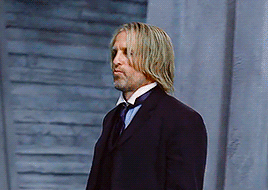

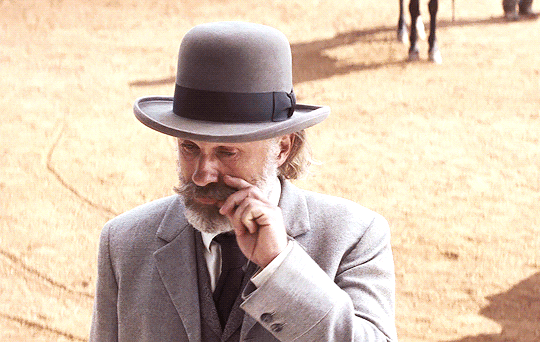
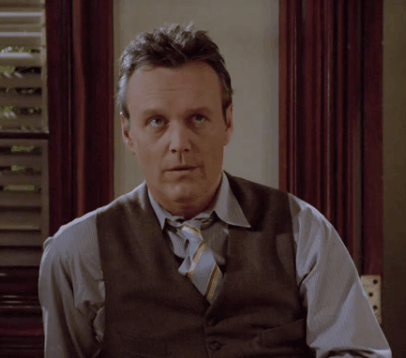

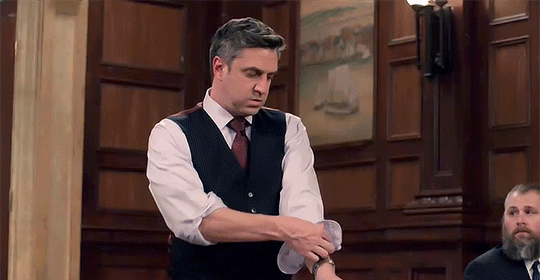
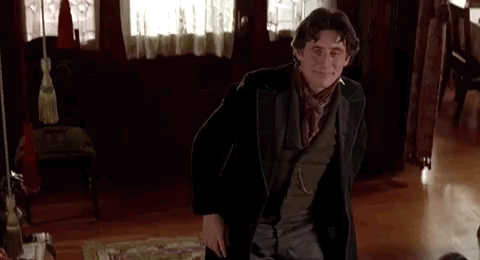

#9 favorite characters#game of thrones#tyrion lannister#iron man#avengers#tony stark#haymitch abernathy#hunger games#django unchained#christoph waltz#little women#fritz bhaer#gabriel byrne#james spader#alan shore#boston legal#law and order#raul esparza#rafael barba#my hero academia#aizawa shouta#buffy the vampire slayer#rupert giles#anthony stewart head#peter dinklage#robert downey jr
18 notes
·
View notes
Text
Don’t talk to me about Team Jacob or Team Edward, I only care if your Team Bhaer or Team Laurie
#little women#louisa may alcott#fritz bhaer#freidrich bhaer#laurie laurence#jo march#the march sisters
16 notes
·
View notes
Note
I wonder if Fritz had already read her book before he met her.
Which book do you mean? Because she doesn't publish a book until after she meets him, but if you mean her short stories, I am going to take a gander and say, no. Mostly because I am sure her stories were published in a local newspaper and given they lived in two completely different states, but we do know for sure that after she leaves New York, he follows her writings and even keeps them.
In Chapter 46: "Under the Umbrella", he shares that her poetry brought him to her in Concord, and this exchange happens:
“It’s very bad poetry, but I felt it when I wrote it, one day when I was very lonely, and had a good cry on a rag bag. I never thought it would go where it could tell tales,” said Jo, tearing up the verses the Professor had treasured so long.
“Let it go, it has done its duty, and I will haf a fresh one when I read all the brown book in which she keeps her little secrets,” said Mr. Bhaer with a smile as he watched the fragments fly away on the wind.
He has his own little scrap book of her writings! So precious!
8 notes
·
View notes
Text
Jo and Freddy Little Women 2018 He Treats Me Like A Goddess
Jo and Freddy Little Women 2018 He Treats Me Like A Goddess
Sarah Davenport as Jo and Ian Bohen as Freddy (Fritz) Bhaer in the modern adaptation of Little Women from 2018. Song is “Goddess” by Avril Lavigne.
Start your own Etsy shop and get the first 40 listings for free
youtube
View On WordPress
3 notes
·
View notes